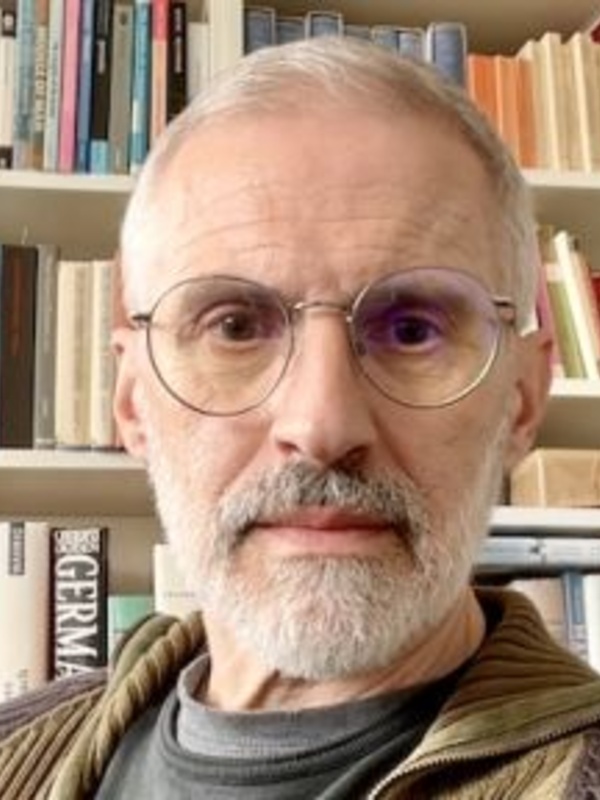Professor Mark Chinca
- Professor of Medieval German and Comparative Literature

Contact
Location
- Faculty of Modern and Medieval Languages and Linguistics
About
Mark Chinca studied in Cambridge and Kiel and is a specialist in medieval literature with a comparative focus on German, Romance, and Latin. His primary research interests are in rhetoric, poetics, and metaphor; the literature of death and dying in medieval and early modern Europe; the formation of vernacular textual culture in the Middle Ages.
From 2012 to 2018 he directed the Kaiserchronik project together with Christopher Young; this was a collaboration by teams based at the universities of Cambridge, Marburg, and Heidelberg to produce a digital edition of one of the first vernacular verse chronicles in its various manuscript versions. More recently completed projects include Meditating Death (2020), a study of devotional practice and how it was shaped by written textuality before and after the Protestant Reformation, and Literary Beginnings in the European Middle Ages (2022), a collective literary history which asks how vernacular textual cultures began and what processes of consolidation and institutionalization had to be complete before we can speak meaningfully of “literature” in any given language. A further collection, Unlikening Translation (2025), explores the potential of Walter Benjamin’s famous essay “The Task of the Translator” for understanding the many kinds of linguistic and nonlinguistic transfer that went by the name translatio in the Middle Ages.
Currently Mark holds a Major Research Fellowship from the Leverhulme Trust and is working on The Formation of Medieval German Literature. The project investigates the multiple and cumulative beginnings of traditions of textual practice in the German-speaking world over a long timespan between the eighth and thirteenth centuries.
Research
Published works:
Recent books, collections, and journal special issues
Einfachheit. Mediävistische Perspektiven auf eine kulturelle Leitidee. Edited by Mark Chinca, Silvia Reuvekamp, and Christopher Young. Tübingen: Francke Verlag, 2026.
Unlikening Translation: Words, Sounds, Events, Things. Edited by Mark Chinca and Sean Curran. Special issue of Digital Philology: A Journal of Medieval Cultures 14, no. 2 (Fall 2025).
Meditating Death in Medieval and Early Modern Devotional Writing: From Bonaventure to Luther. Oxford University Press, 2020. Paperback 2023.
Literary Beginnings in the European Middle Ages. Edited by Mark Chinca and Christopher Young. Cambridge University Press, 2022.
Sammeln als literarische Praxis im Mittelalter und in der Frühen Neuzeit. Konzepte, Praktiken, Poetizität. Edited by Mark Chinca, Manfred Eikelmann, Michael Stolz, and Christopher Young. Tübingen: Francke Verlag, 2022.
Edition
Kaiserchronik. Elektronische Ausgabe. Edited by Mark Chinca, Helen Hunter, Jürgen Wolf, Christopher Young. Heidelberg: Universitätsbibliothek, 2018.
Recent book chapters and journal articles
“Hypertextuelle Dichterkataloge. Eine palimpsestuöse Lektüre.” In Vernetzungen – Relationen (in) der mediävistischen Literaturwissenschaft, edited by Stefan Abel, Kathrin Chlench-Priber, Christian Sonder, and Gabriel Viehhauser, 31-54. Basel: Schwabe Verlag, 2026.
“Likeness and Translation: On Metaphor in Henry Suso.” In Unlikening Translation: Words, Sounds, Events, Things, edited by Mark Chinca and Sean Curran. Special issue of Digital Philology: A Journal of Medieval Cultures 14, no. 2 (Fall 2025): 206-36.
“Courtly Narration and the Field of Books: Imaginative and Conceptual Configurations.” Beiträge zur Geschichte der deutschen Sprache und Literatur 147, no. 2 (2025): 209-49.
“Poesie des Versagens. Zur Topik der Unfähigkeit und Unsagbarkeit bei Gottfried von Straßburg.” In Scheitern in der Vormoderne. Narrative Konzeptualisierungen in Literatur und Historiographie, edited by Margit Dahm, Andreas Bihrer, and Timo Felber, 69-99. Göttingen: Vandenhoeck & Ruprecht, 2024.
“The Presence of French in German Courtly Literature c.1200.” In Medieval French Interlocutions: Shifting Perspectives on a Language in Contact, edited by Jane Gilbert, Thomas O’Donnell, and Brian Reilly, 137-58. York Medieval Press, 2024.
For a complete list of publications see here.
